Coconut Sugar Substitutes (15 Best Alternatives!)
Coconut sugar is a low glycemic index natural sweetener with a rich coconut flavor. See the best coconut sugar substitutes in the helpful list below!
![Coconut Sugar Substitutes [15 Best Alternatives!]](https://moonandspoonandyum.com/wp-content/uploads/2022/02/Pinterest-Pin-Templates-Moon-and-Spoon-and-Yum-1200-x-1200-px-22.jpg)
As you’ve probably seen on the blog, coconut sugar is my all-time favorite sweetener. It is delicious, gets the job done well and doesn’t cause that dreaded sugar crash. However, what do you do when you don’t have any hand? That’s where this helpful guide comes into play! Here’s a list of my top coconut sugar substitutes. I hope you enjoy!
🥥 What is Coconut Sugar?
Coconut sugar is a natural sweetener derived from the sap of the flowers of coconut palm trees. It is also known as coconut palm sugar, not to be confused with palm sugar (which comes from the palm tree), which is different.
Coconut sugar is most well-known for its lower glycemic index in comparison to other sugar options and is a bit gentler on blood sugar levels. It also contains the prebiotic known as inulin, which encourages beneficial bacteria in the gut to proliferate.
The liquid form of coconut sugar is known as coconut nectar. While coconut sugar is a healthier option than regular sugar, it is still similar in calorie content, so that is something to keep in mind!
Coconut sugar is also rich in trace minerals and nutrients like zinc, iron, copper, magnesium, calcium and potassium, which certainly make it an option with some health benefits.
❓Which Sugar is the Healthiest?
While certain minimally processed natural sweeteners like coconut sugar and other sugar alternatives can be healthier options than conventional white cane sugar due to their mineral content, all sugars, including natural sugars, are still just that: sugar, and should continue to be used in moderation due to the similar nature with which they are processed in the body.
📋 The Best Coconut Sugar Substitutes
1. Brown Sugar
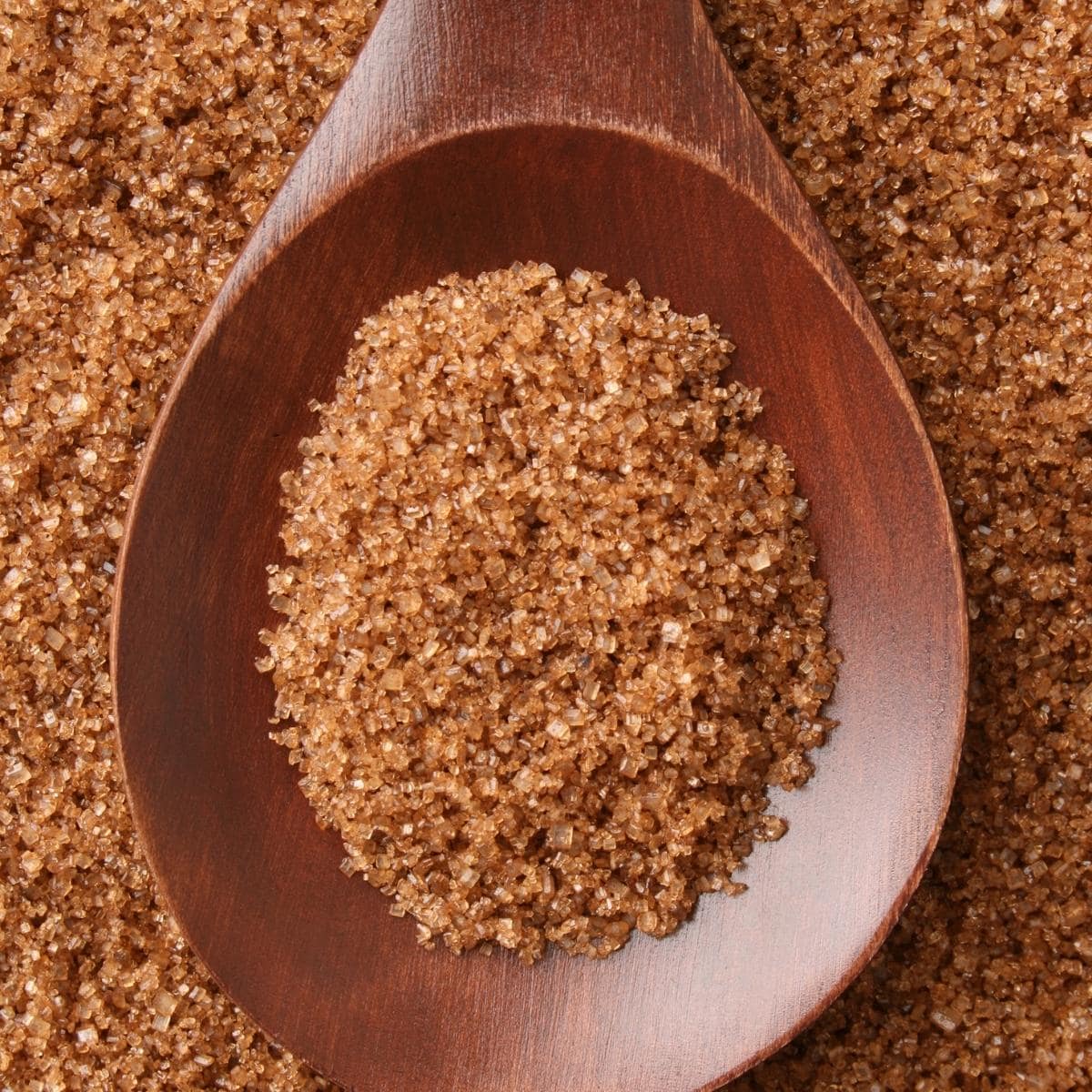
Light brown sugar and dark brown sugar are both my top picks for replacing coconut sugar. Brown sugar is the closest in texture, flavor and color and can be used in a 1:1 ratio as coconut sugar. This works well in both baked goods and cooking recipes.
2. Maple Syrup
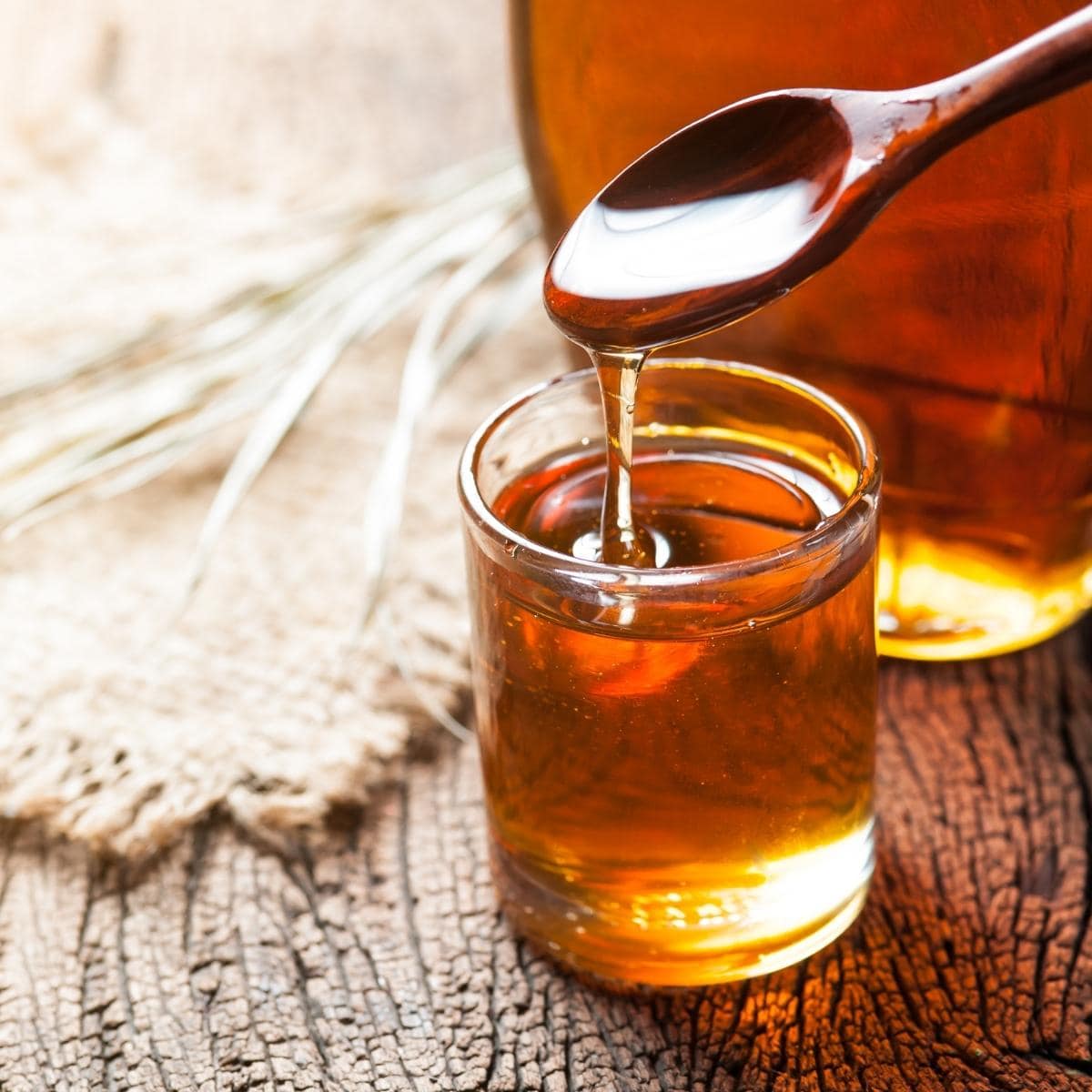
In recipes where granulated and liquid sweeteners can be used interchangeably, pure maple syrup makes a great substitute for coconut sugar. It is similar flavor and can be used in a 1:1 ratio. Maple syrup is great to bake with and will add additional moisture, too.
3. Raw Honey
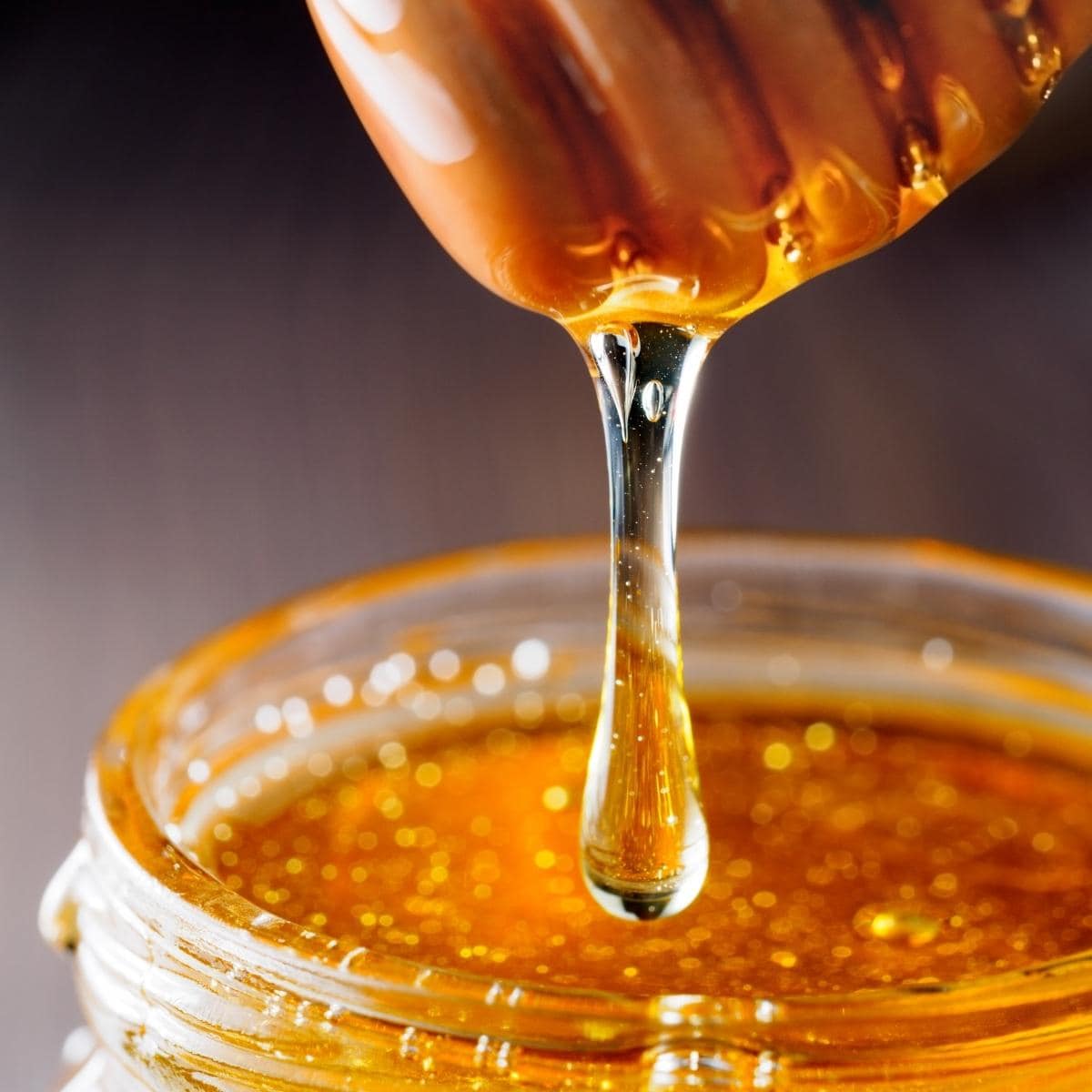
Raw honey makes a great alternative to coconut sugar, though it is a tad sweeter in flavor. Use slightly less than you would with coconut sugar. Due to its sweetness, raw honey is a great replacement for coconut sugar in drink recipes, or anywhere where a sweet tooth is at play.
4. Date Sugar
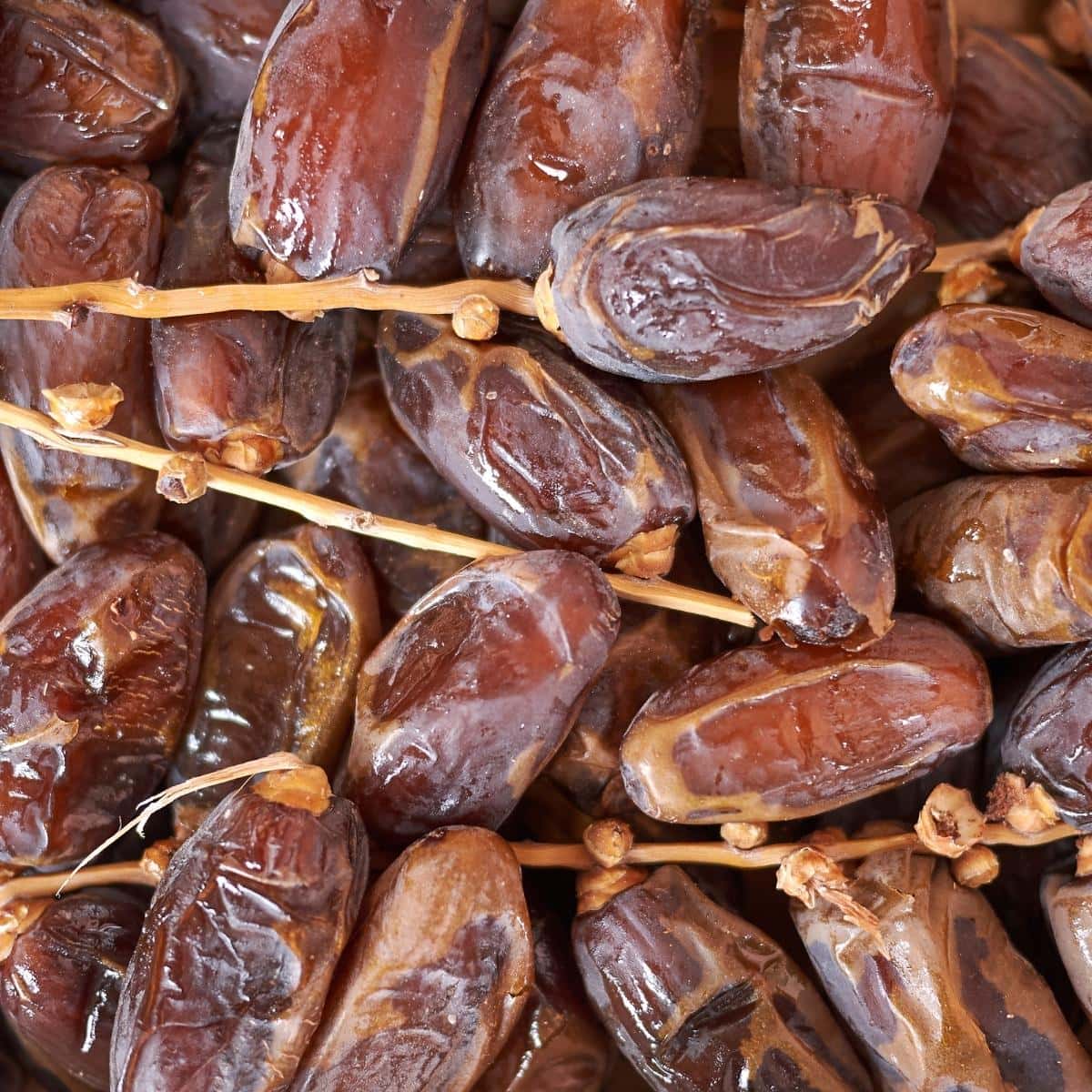
Date sugar is another excellent coconut sugar replacement, as it is similar in terms of taste, vitamins and fiber content goes. Use in a 1:1 ratio. It has a nice caramel flavor that works well in drinks and sweet baked goods.
5. Maple Sugar
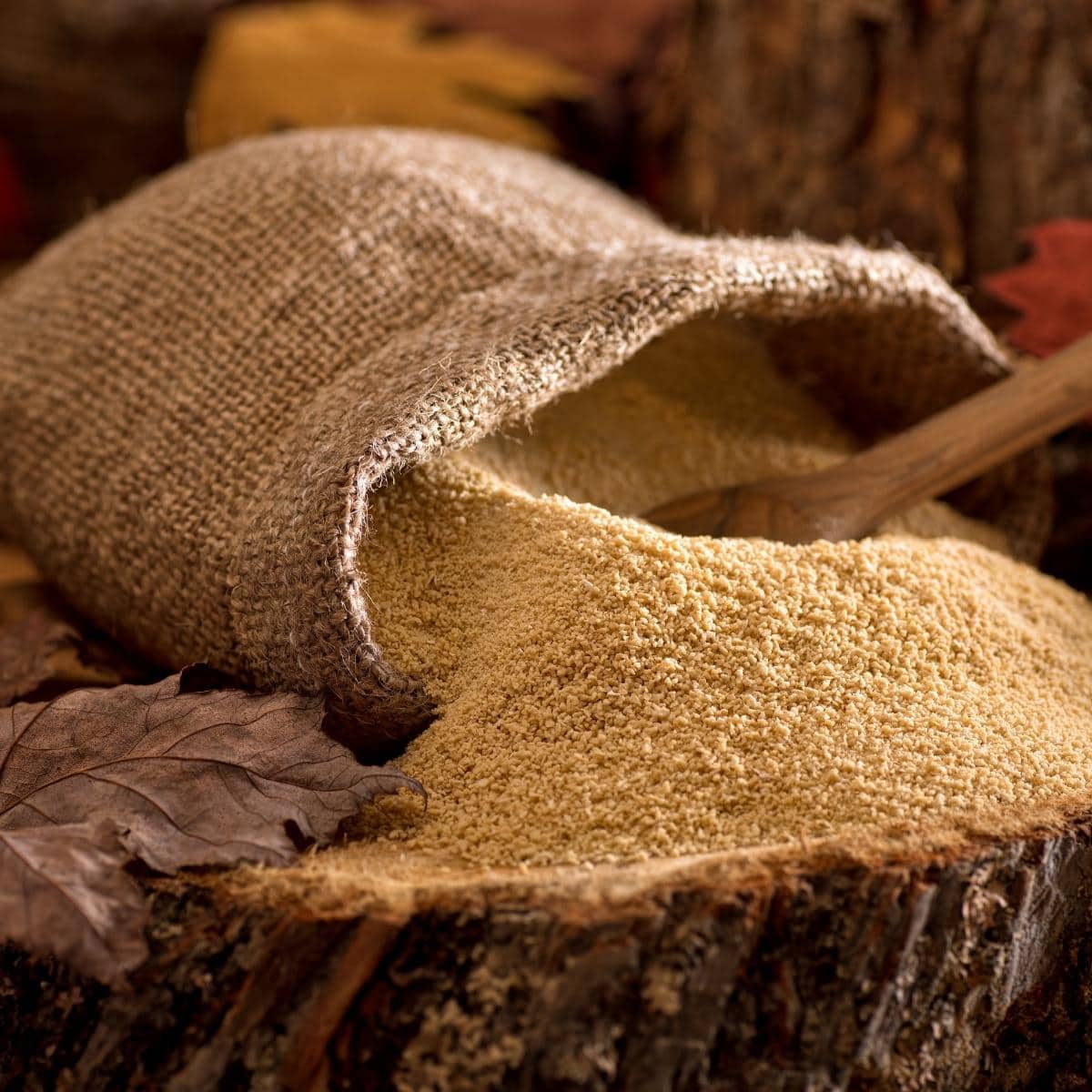
Maple sugar is a great coconut sugar alternative and hits all the marks when it comes to flavor and taste similarities. Use in a 1:1 ratio. Maple sugar works great in both baked goods and raw dessert recipes. You can most commonly find it at health food stores.
6. White Cane Sugar
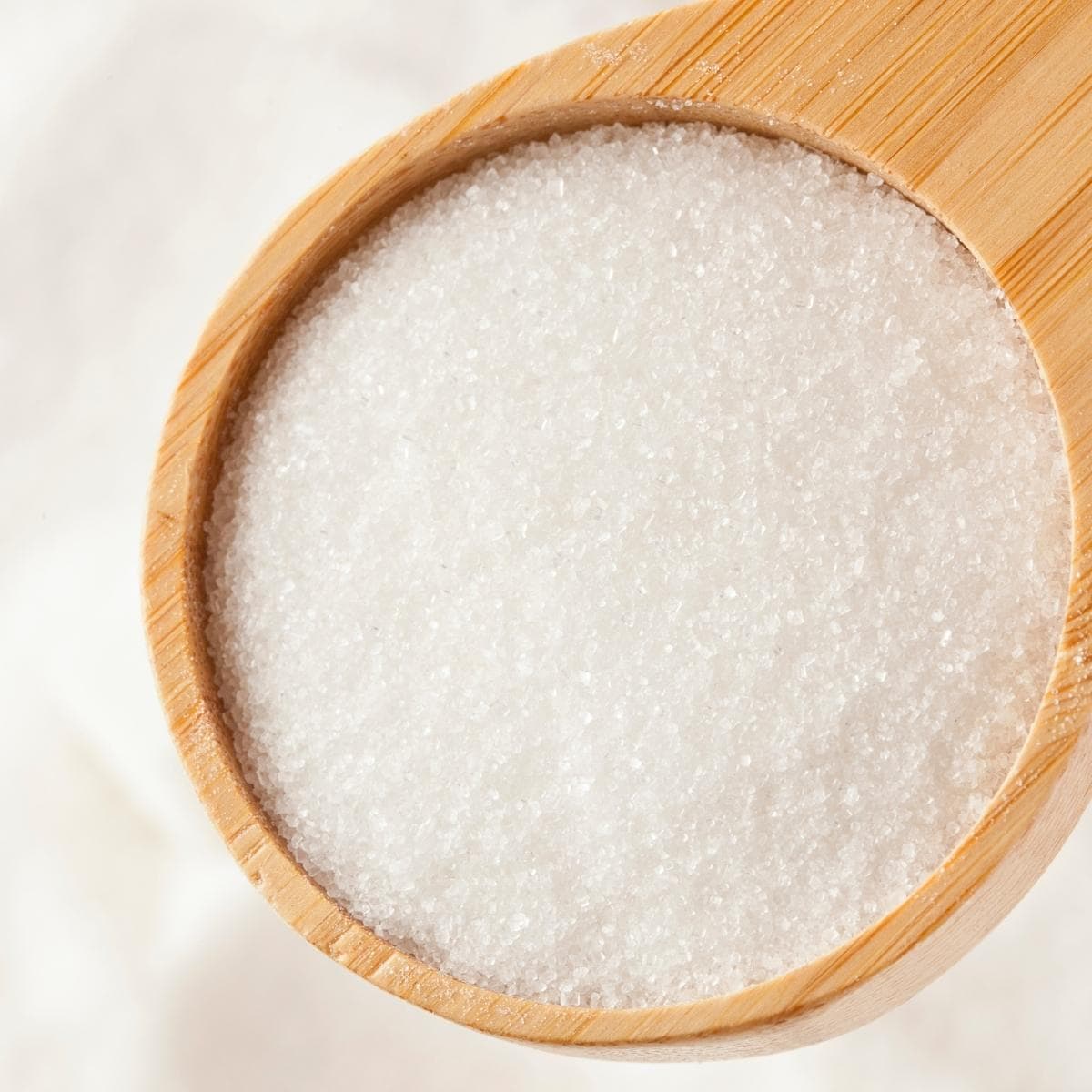
Regular white sugar can certainly be used in recipes that call for coconut sugar, and the two are commonly used interchangeably. White cane sugar (aka table sugar) probably tops the list in terms of sweet taste. For every cup of coconut sugar called for, use one cup of sugar.
7. Molasses
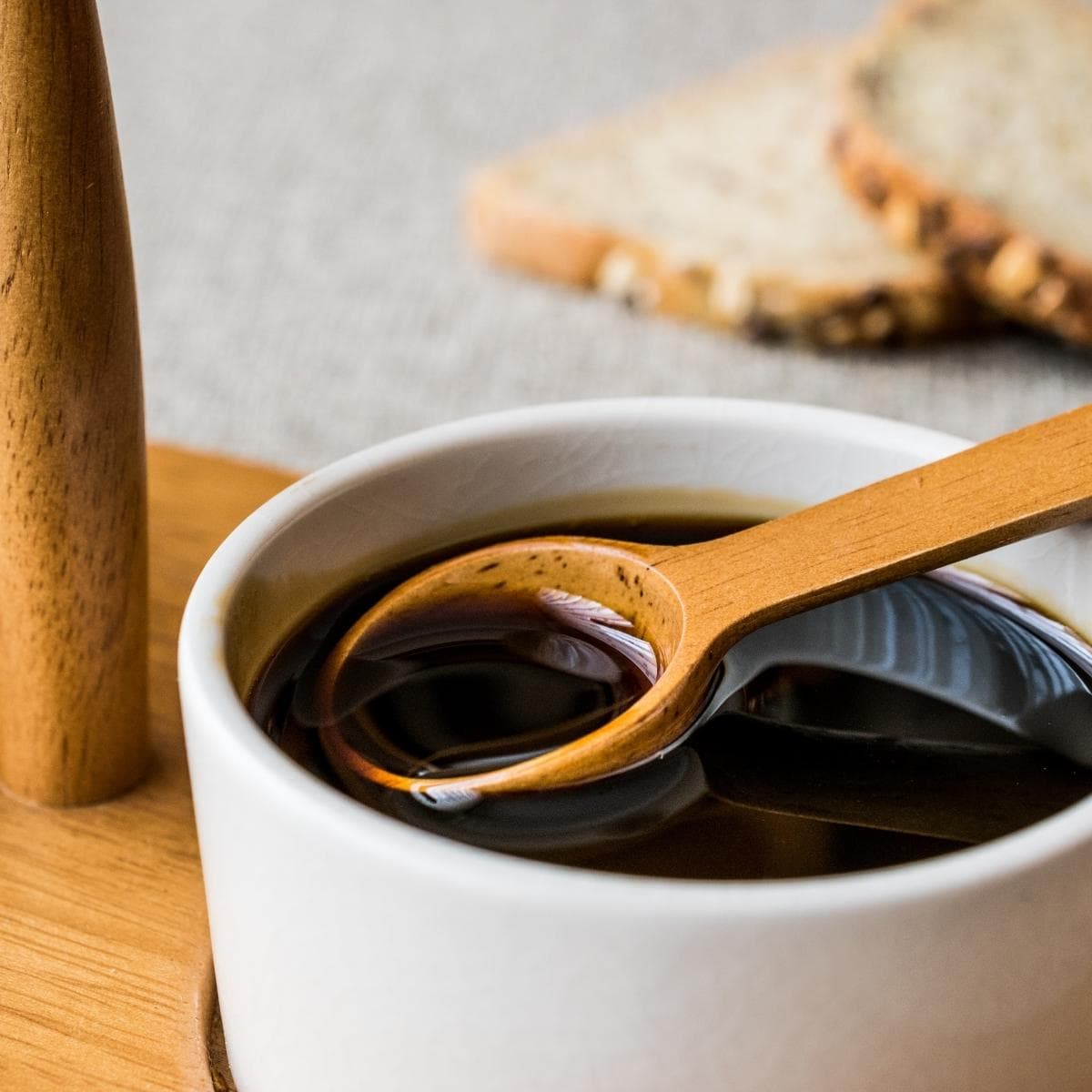
Molasses certainly has its own rich flavor, but it’s not too very different from the smoky tones you will find in coconut sugar. However, because of the subtle bitterness that molasses can impart, I recommend using it in recipes where less than 1/2 cup of sweetener is called for, or using half molasses and half of another substitute in this list. Bonus: blackstrap molasses is a rich source of iron.
8. Agave Nectar
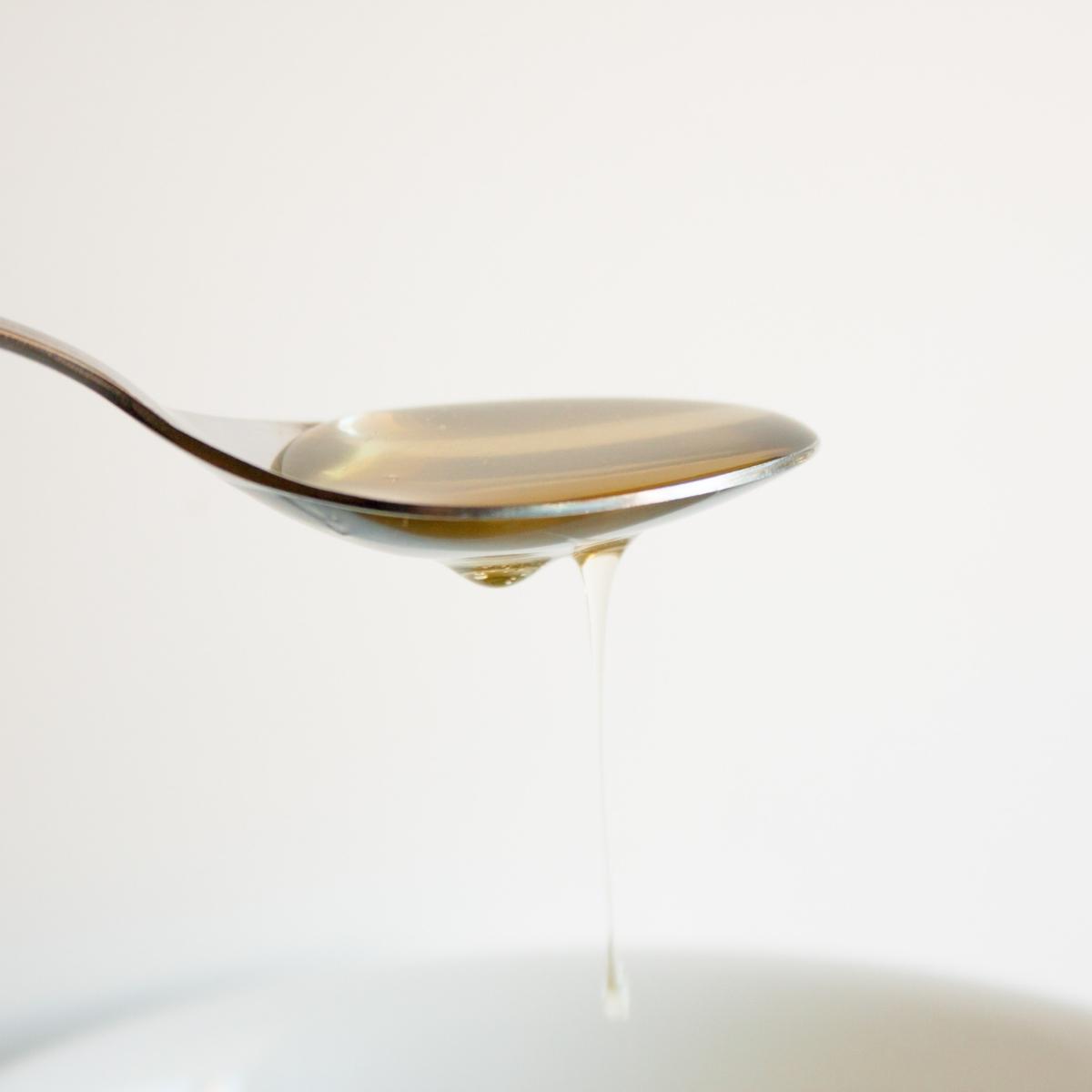
Agave nectar is another wonderful liquid sweetener that will get the job done when replacing coconut sugar. Agave syrup is derived from the agave plant and is rich in fructose. Use in a 1:1 ratio. Agave works great in dishes with roasted vegetables and frozen treats alike.
9. Monk Fruit Sweetener
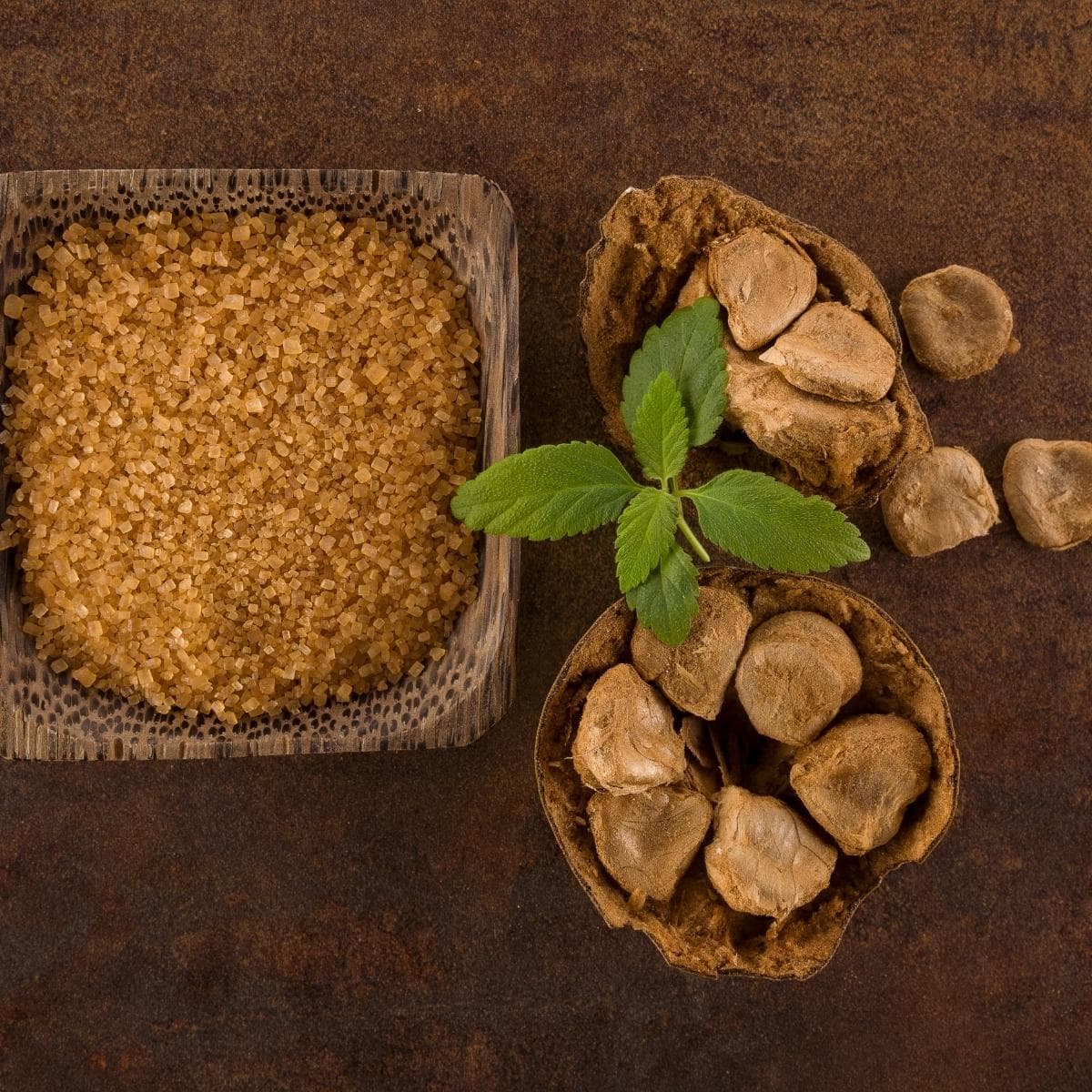
Monk fruit sweetener is a natural sugar-free sweetener that actually makes a suitable replacement for coconut sugar. You can find monk fruit in both a pure liquid form or a granulated form (that is often mixed with erythritol) – either will work.
10. Brown Rice Syrup
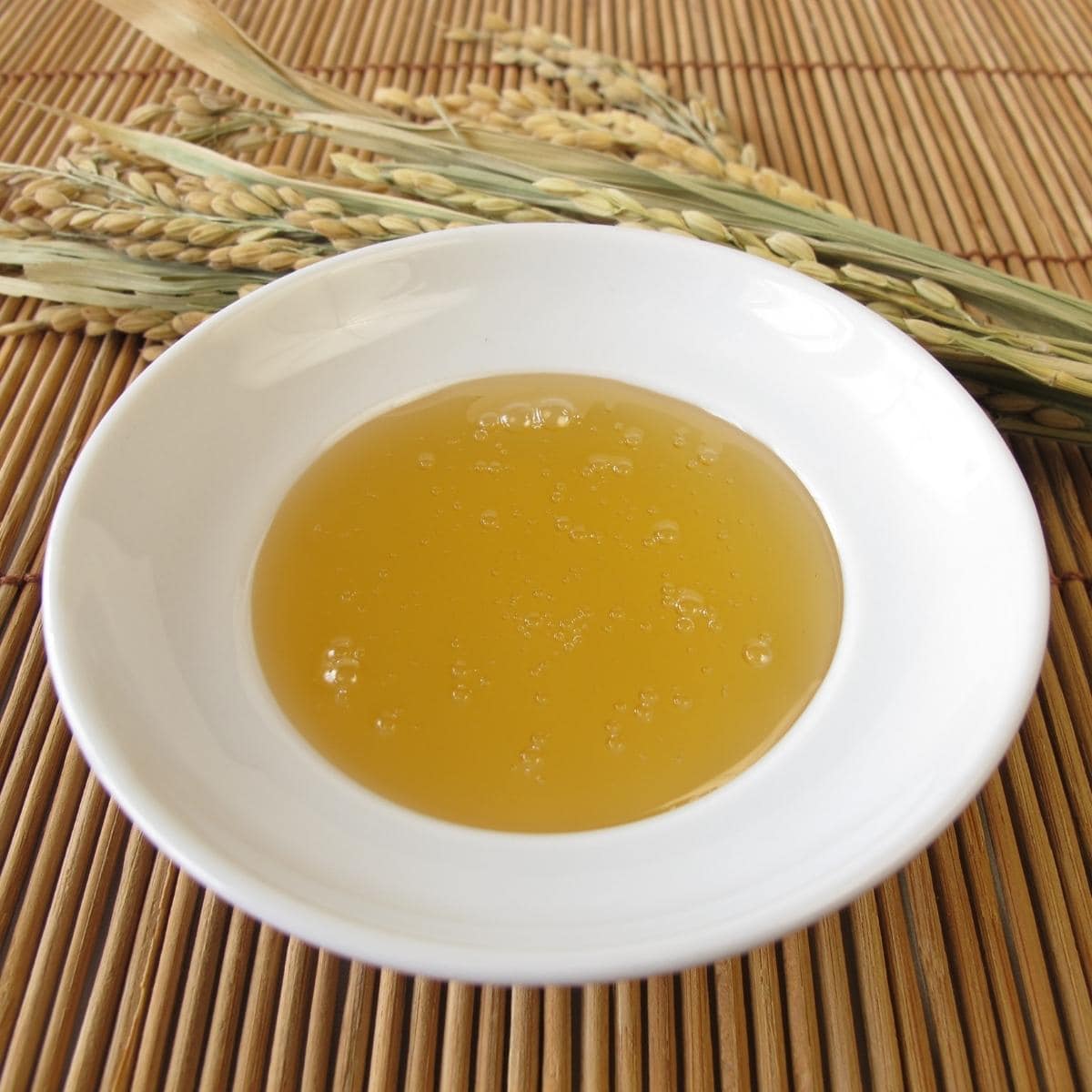
Brown rice syrup is a wonderful liquid sweetener and substitute for coconut sugar. However, it is not quite as sweet-tasting as coconut sugar, so you may want to use more of it in recipes that allow the leeway to do so. Brown rice syrup works great in sauce recipes that would normally call for coconut palm sugar.
11. Stevia
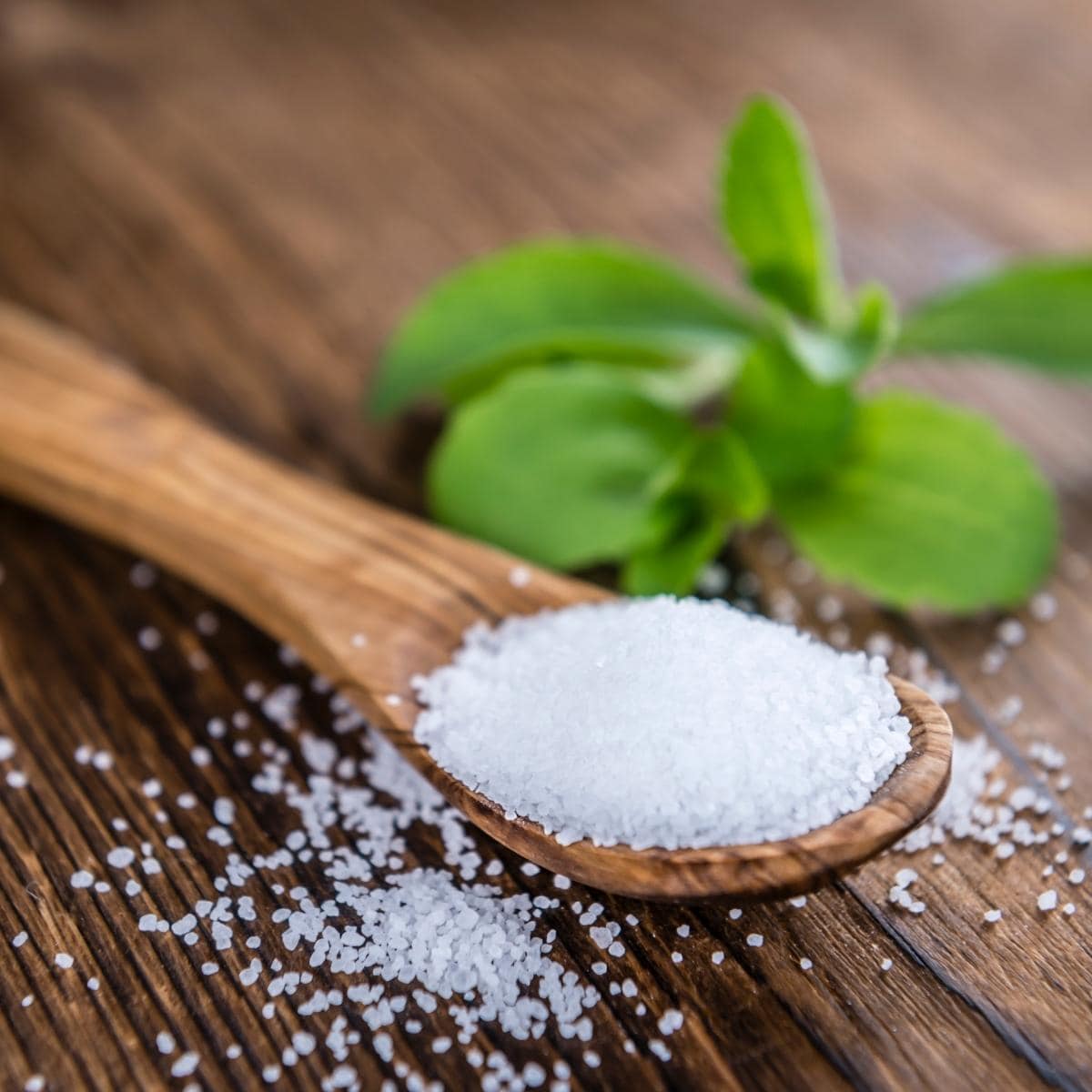
Stevia is a plant-based sugar-free sweetener that comes in a variety of forms. It makes a suitable alternative to coconut sugar, especially if you are trying to cut down on sugar intake. For each cup of coconut sugar a recipe calls for, use 1 teaspoon of liquid or powdered stevia. Stevia is great for sugar-free baking recipes. While a specialty item, it can be found in most grocery stores these days.
12. Turbinado Sugar
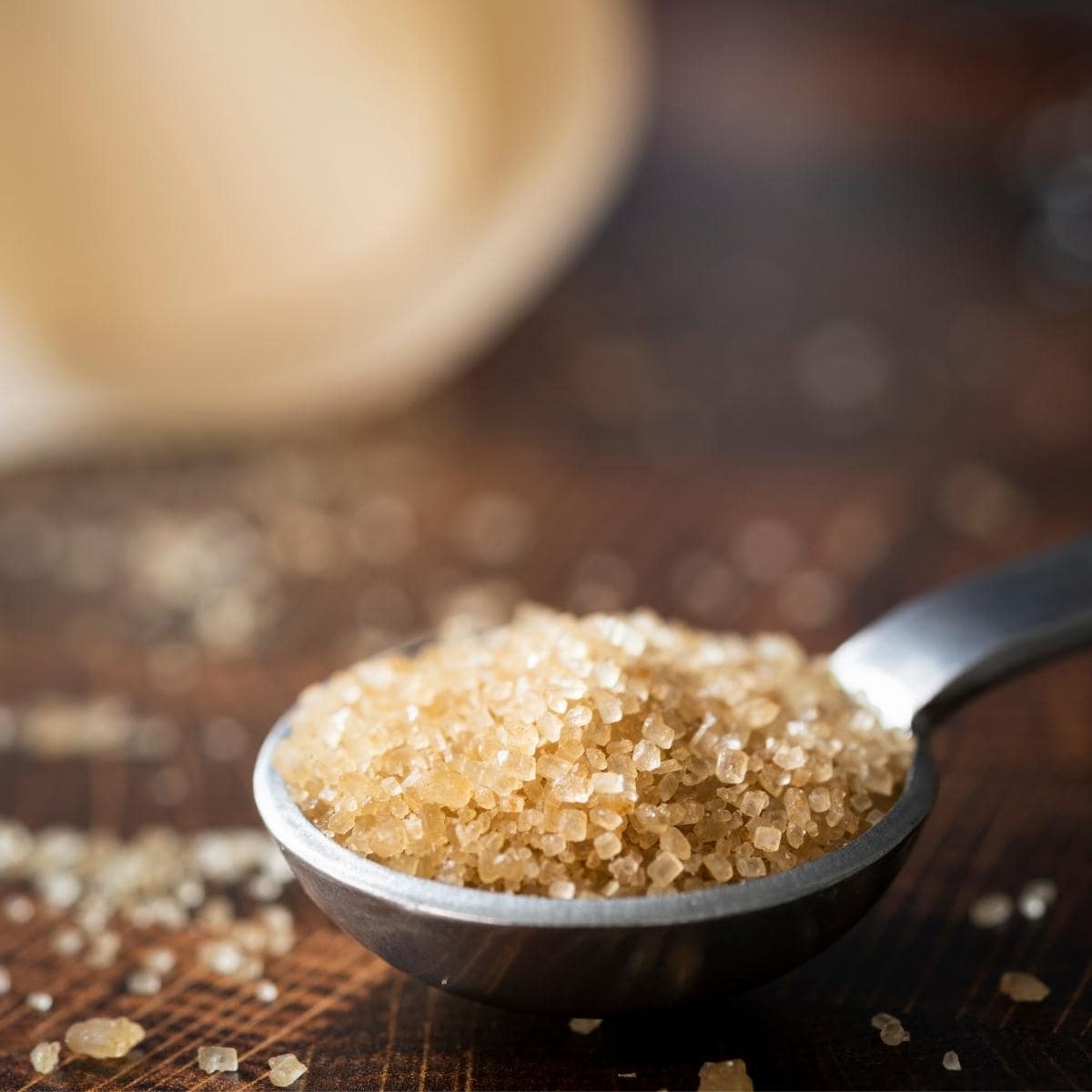
Turbinado is partially refined cane sugar that still maintains some of its original nutrients, which also lends a slight caramel-like flavor in comparison to white cane sugar. Use in a 1:1 ratio to coconut sugar. Turbinado sugar is great for adding that pretty crunch on top of baked goods like muffins and cakes.
13. Panela
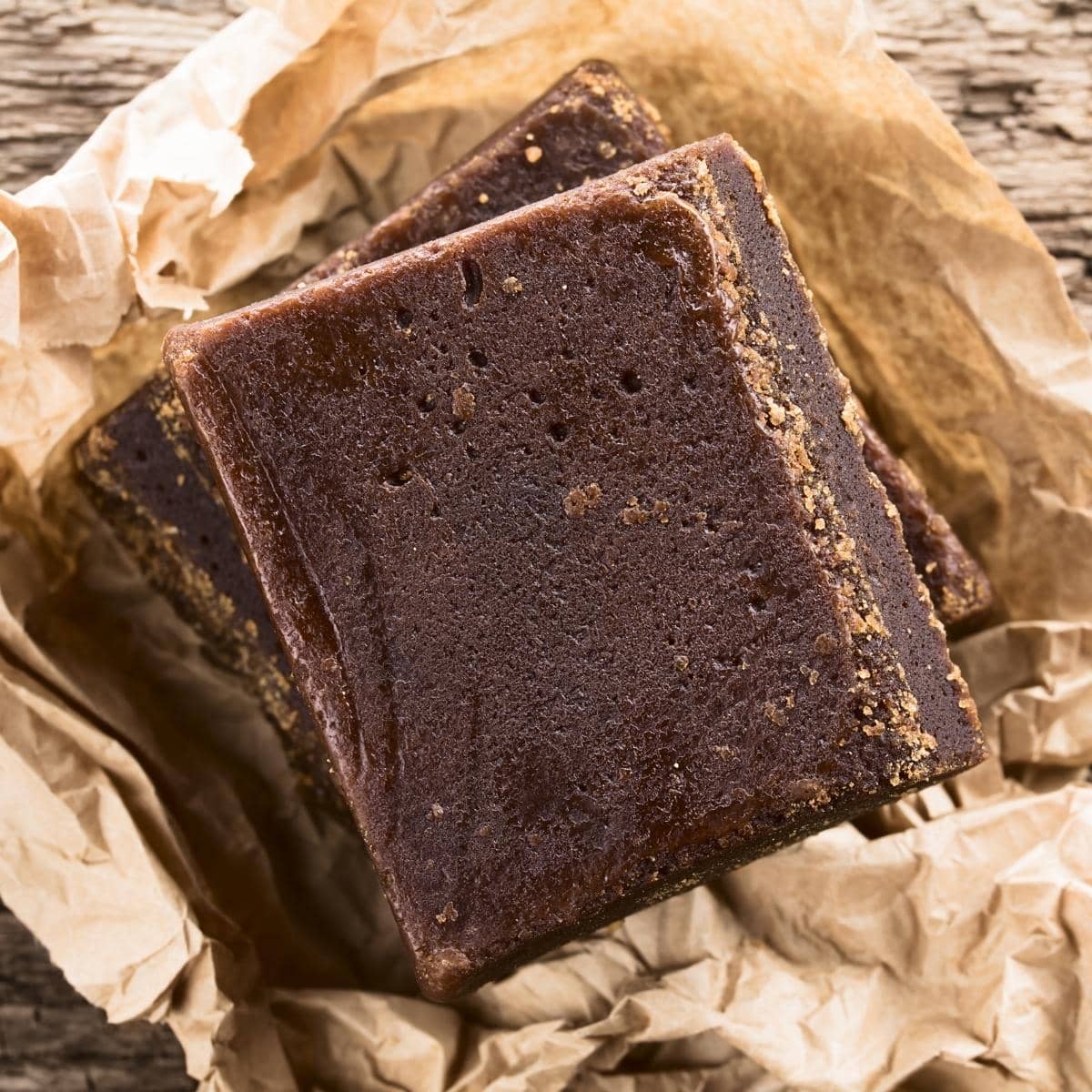
Oh, how I love panela! I first encountered panela in a market stall in Ecuador, and boy is it delicious! Panela is unrefined cane sugar that comes in both solid and liquid forms. It also know by the names of jaggery, raspadura, chancaca or piloncillo, dependent on what region of the world it is found. Due to its smoky, earthy taste, it makes an excellent substitute for coconut sugar in a 1:1 ratio.
14. Sucanat
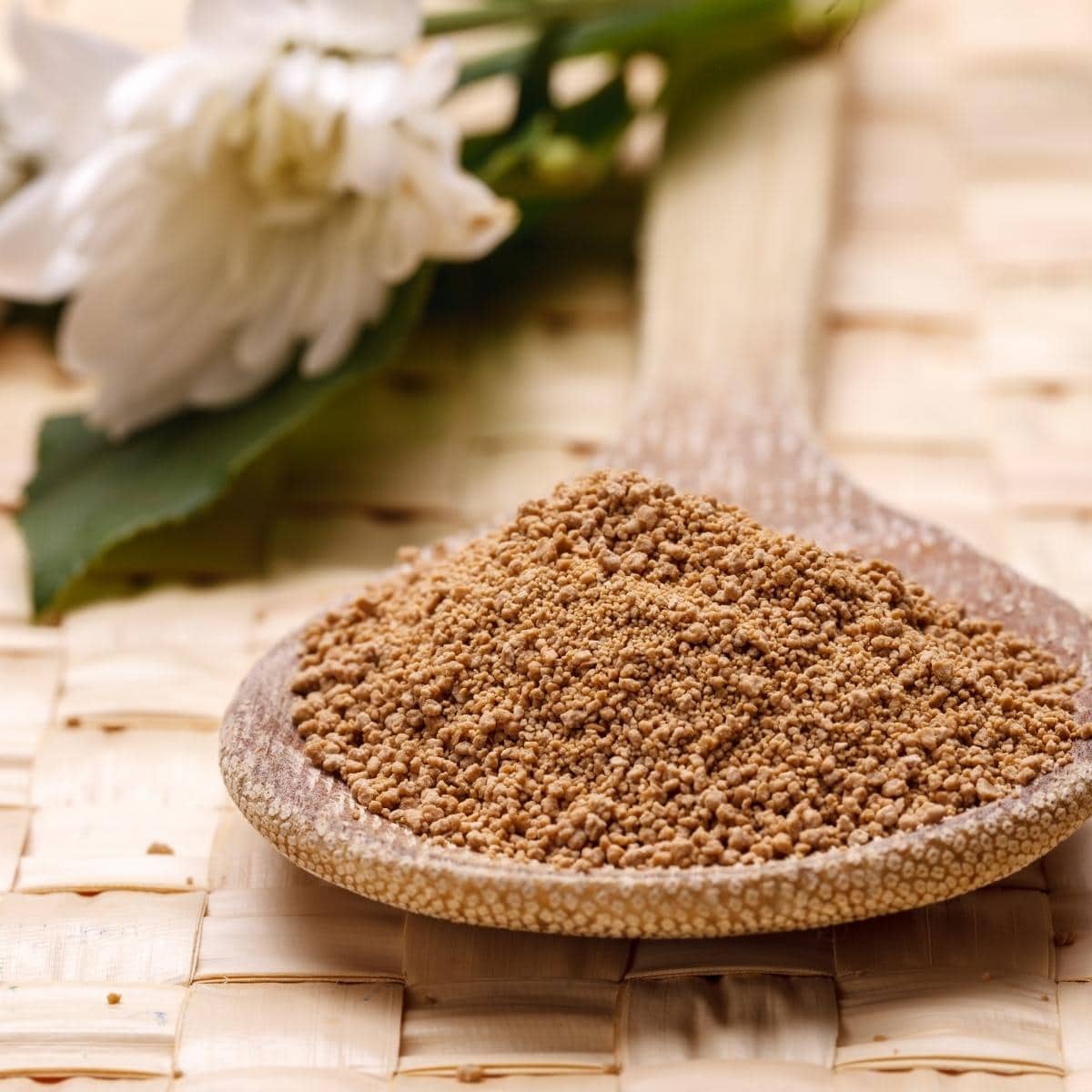
Sucanat is pure dried cane juice in crystallized form. It maintains some of its molasses content, giving it its subtle brown color and rich taste. Use in a 1:1 ratio.
15. Allulose
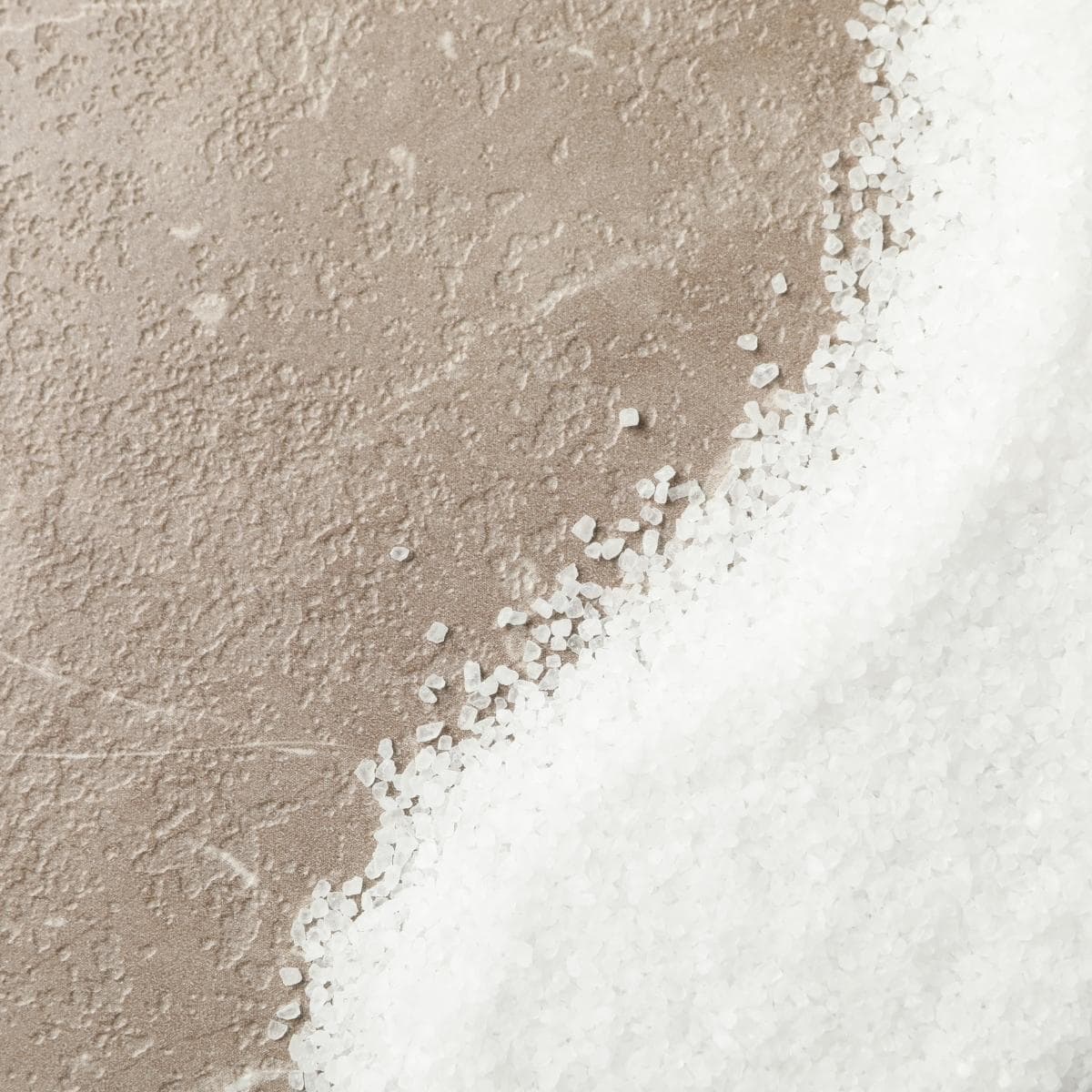
Allulose is a relatively new sugar-free sweetener to hit the mainstream market. In its natural form, it can be found in some fruits, like figs. Unlike some other options, it does not produce an insulin response and is safe for those on a sugar-free diet. It is slightly less sweet than coconut sugar, so you may want to use a touch more when substituting coconut sugar.
🥣 Recipes Using Coconut Sugar
Gluten-Free Pumpkin Spice Coconut Sugar Cookies
💭 More Ingredient Substitution Guides
Substitutions for Almond Extract
Regardless of the type of sugar you choose as the best alternative to coconut sugar, we hope you enjoyed the journey of trying some of the best coconut sugar substitutes to be found. If you enjoyed this post, please share it! Your support is greatly appreciated.

![Coconut Sugar Substitutes [15 Best Alternatives!]](https://moonandspoonandyum.com/wp-content/uploads/2022/02/Pinterest-Pin-Templates-Moon-and-Spoon-and-Yum-6-465x1024.jpg)
Is there a specific reason why one would not use coconut sugar compared to other natural alternatives
Some people prefer dates, date syrup, and date sugar over coconut sugar as it is slightly lower in calories and carbs. But unless you are on a keto diet or diabetic, coconut sugar is my preferred sweetener of choice. I created this post because it is a common question I get asked about recipes I share with coconut sugar in them. 🙂